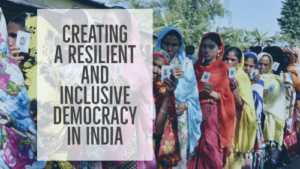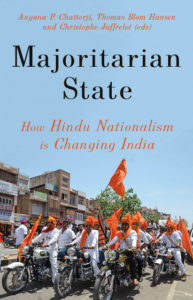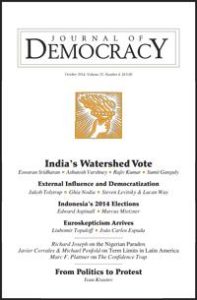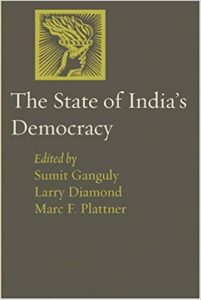Protests were held in several cities (Reuters) in Pakistan after India revoked the special status of the disputed Jammu and Kashmir region. Islamabad said it will “exercise all possible options to counter the illegal steps,” while the United Nations called for restraint amid the security lockdown by Indian forces. Two former chief ministers of the region who opposed revoking its status were put under house arrest (Mint, HT:CFR).
The administration of Prime Minister Narendra Modi revoked Article 370 of the Indian constitution, a 70-year-old provision that had given autonomy to the state of Jammu and Kashmir, which includes the Hindu-majority area of Jammu and the Muslim-majority Kashmir valley, The New York Times reports (HT:FDD).
 Analysts say that Mr. Modi and Amit Shah, India’s home minister, widely considered the Indian leader’s right-hand man, were desperate to shore up their base and shift the conversation, The Times adds:
Analysts say that Mr. Modi and Amit Shah, India’s home minister, widely considered the Indian leader’s right-hand man, were desperate to shore up their base and shift the conversation, The Times adds:
Human rights activists said that the moves to change Kashmir’s status were only the first steps in a broader plan to erode Kashmir’s core rights and seed the area with non-Kashmiris, altering the demographics and eventually destroying its character. Previous laws barred outsiders from owning property. Several legal scholars said they believed the government did not have the legal authority to change Article 370. The issue, they said, was headed for a showdown in India’s Supreme Court,
“This is exactly what national populists do all over the world,” said Christophe Jaffrelot, a research fellow at CERI-Sciences Po/CNRS in Paris. “Clearly, India is entering a zone of economic turbulence. So this is the right time to return to the nationalistic agenda.”
Before making the announcement, the government detained several political leaders, imposed broad restrictions on freedom of movement, and banned public meetings. It also shut down the internet, phone services, and educational institutions. The Indian government should take all necessary steps to ensure that security forces act with restraint, Human Rights Watch said.
“The government has a responsibility to ensure security in Kashmir, but that means respecting the human rights of everyone, including protesters,” said Meenakshi Ganguly, South Asia director at Human Rights Watch. “The government got off to a bad start by detaining political leaders, banning public meetings, and shutting down the internet.”
Which state will next feel the sharp edge of Amit Shah’s knife? Which town, district, or taluka, will be deemed too troublesome to be allowed to participate in democracy?
 Has India become what one recent books calls a “majoritarian state”?
Has India become what one recent books calls a “majoritarian state”?
During his first term, Modi’s government demonstrated a clear disregard for tenets of liberalism such as religious pluralism and protection of minorities; attacks on academic freedom, independent media, and minority citizens have also risen, analyst Suvolaxmi Dutta Choudhury writes for Open Democracy:
The ostensible abandonment of India’s secular values has arguably found greater ground with Modi’s landslide victory. The beginning of his second term has already coincided with the lynching of a Muslim youth in a purported case of religious violence, one of hundreds of religious, caste or tribal-identity-based hate crimes reported in the last few years. Is Modi’s new mandate the clearest signs yet of a rupture between liberalism and Indian democracy?
 In confronting India’s staggering diversity, the framers of its Constitution sought to shape an overarching Indian identity even as they acknowledged the reality of pluralism by guaranteeing fundamental rights, in some cases through specific provisions for the protection of minorities, Robert L. Hardgrave Jr. wrote for the NED’s Journal of Democracy.
In confronting India’s staggering diversity, the framers of its Constitution sought to shape an overarching Indian identity even as they acknowledged the reality of pluralism by guaranteeing fundamental rights, in some cases through specific provisions for the protection of minorities, Robert L. Hardgrave Jr. wrote for the NED’s Journal of Democracy.
The way the Indian government has approached its revocation of the special status of Muslim-majority Kashmir shows it has given up on the concept that an administration’s legitimacy is derived from the consent of the governed, another observer suggests.
There is resistance to Modi from civil society, observers suggest.
It can be seen in the work of lawyers who refuse to back down despite being harassed as “anti-national,” and among the activists who mobilize to help victims of lynch mobs, adds analyst Sonia Faleiro:
 It is visible, too, in a number of independent news and fact-checking websites that have mushroomed in response to Modi’s false narratives and the supine corporate media. And it is found in the public protests of private citizens who continue to reject his vision of a Hindu India. As though in response, the Modi government this month passed a legal amendment in the lower house of Parliament that will empower the state to designate individuals, not just organizations, as “terrorists”—potentially permitting the government to criminalize a person it chooses to accuse of “promoting terrorism.”
It is visible, too, in a number of independent news and fact-checking websites that have mushroomed in response to Modi’s false narratives and the supine corporate media. And it is found in the public protests of private citizens who continue to reject his vision of a Hindu India. As though in response, the Modi government this month passed a legal amendment in the lower house of Parliament that will empower the state to designate individuals, not just organizations, as “terrorists”—potentially permitting the government to criminalize a person it chooses to accuse of “promoting terrorism.”
The rot may have set in decades ago, but it has taken Modi only five years to dismantle the idea of India as democratic and secular, Faleiro writes for The NYRB. The opposition movement is fragmentary and local. It will surely have to be widespread and united—with an equally potent alternate vision of India—if Modi is ever to be defeated.







